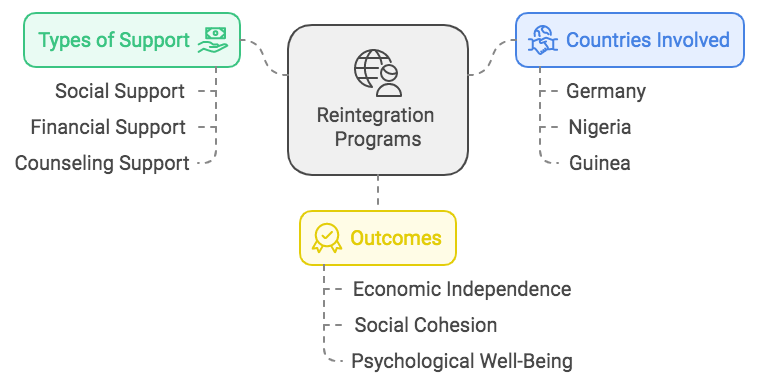As the world emerges from the pandemic’s grip, global migration is steadily returning to pre-pandemic levels. After a significant 27% decline during the COVID-19 crisis, migration rates have rebounded. In 2021, the International Organization for Migration (IOM) facilitated the return of 49,795 migrants to their home countries, reflecting an 18% rise from the previous year.
Meeting the Growing Demand for Safe and Dignified Returns
Yitna Getachew, Director of IOM’s Protection Division, highlighted the agency’s ability to meet the increasing demand for COVID-19 safe, dignified returns. Commenting on the 2021 Return and Reintegration Key Highlights report, Getachew emphasized that the lifting of pandemic-era travel restrictions enabled IOM to support the safe return and reintegration of migrants into their home countries. The report illustrates how effectively the organization responded to the growing need for assisted voluntary return services in a challenging global environment.
Migration Patterns Beyond Europe
The report also underscores a significant shift in return patterns, with many transit-country returns taking place outside of Europe. Niger, in particular, emerged as a key focus for IOM’s work, where 10,573 migrants were assisted in returning to their countries of origin. This number surpasses returns in any single European country, though the overall number of beneficiaries in Europe remains larger.
Reintegration: The Cornerstone of Sustainable Return Programmes
Central to IOM’s voluntary return programs is the concept of reintegration, which empowers returning migrants with opportunities for sustainable development. In 2021, IOM supported 113,331 reintegration initiatives at the individual, community, and structural levels across 121 countries. These programmes offer returning migrants a chance to achieve economic independence, social cohesion, and psychological well-being, making future migration an option rather than a necessity.
Germany, Nigeria, and Guinea were the top three nations offering reintegration support, both for migrants returning home and those in host countries. The reintegration assistance provided typically involved social, financial, and counseling support, ensuring that returnees could rebuild their lives with dignity and stability.
A People-Centered Approach to Migration Policy
The IOM’s 2021 Policy on the Full Spectrum of Return, Readmission, and Reintegration highlights a rights-based approach, focusing on the welfare and rights of individual returnees. This comprehensive strategy, rooted in sustainable development, emphasizes multilateral discussions to enhance return, readmission, and reintegration efforts worldwide.
By placing people at the heart of migration policy, IOM ensures that migrants receive the support they need for a dignified and sustainable return, promoting social cohesion and economic stability both for the individuals and the communities they rejoin. As migration flows continue to recover, the agency’s approach serves as a model for managing return migration in a way that benefits all parties involved.



This trend is visible in many countries. What will be the result of this? That is the million dollar question
It can be a problematic situation also
This will again create imbalance